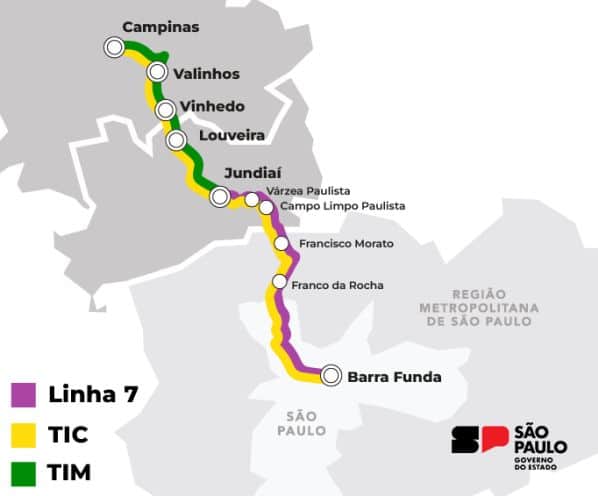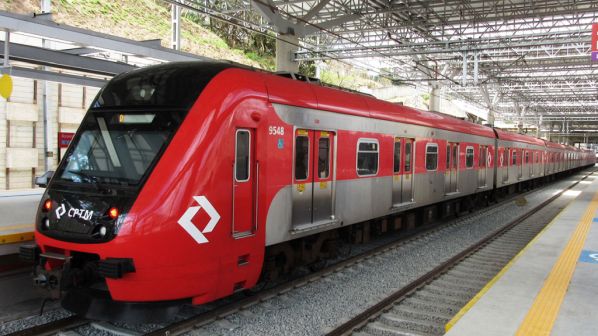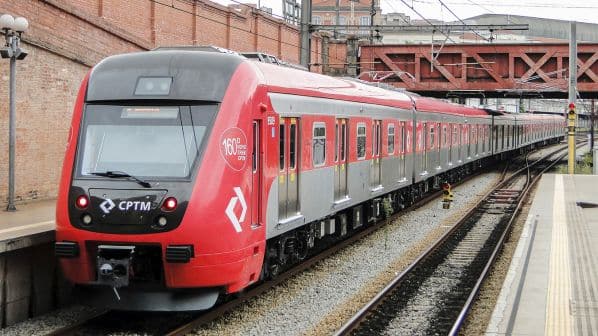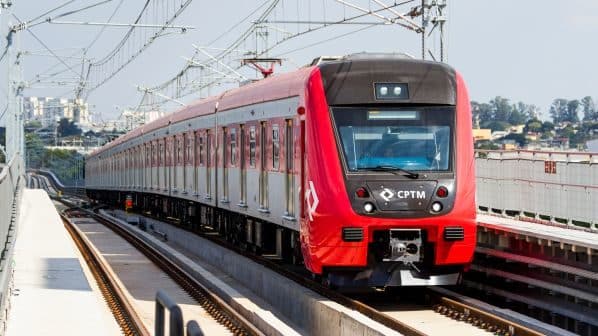THE C2 Mobilidade Sobre Trilhos consortium has been awarded the public-private partnership (PPP) contract to deliver the North Axis of the InterCity Train (TIC) project, the first of its kind in Brazil and centred on upgrading the 101km São Paulo - Campinas line for express passenger services.
The consortium was the sole bidder for the concession contract awarded by the state of São Paulo. Tendering took place by means by means of an auction held at the B3 stock exchange in São Paulo on February 29.
C2 includes Comporte Participações, which in January 2023 was awarded a 30-year concession to operate the Belo Horizonte Metro in Brazil. Its other members are Guide Investimentos and CRRC Hong Kong, which will supply rolling stock.
The consortium will be responsible for upgrading infrastructure, as well as operations and maintenance, for 30 years, retaining revenue from ticket sales. The project will involve total investment estimated at Reais 14.2bn ($US 2.86bn).
São Paulo state government will provide Reais 8.98bn. Brazil's National Bank for Economic and Social Development (BNDES) has approved funding worth Reais 6.4bn to support public investment.
Work on the North Axis is expected to be completed in 2031. Express TIC services will cover the 101km between Palmeiras-Barra Funda station in São Paulo and a new station in Campinas in 1h 4min, with one intermediate stop at Jundiaí.
A fleet of 15 1600-mm gauge TIC EMUs will each have capacity for up to 860 passengers and will operate at up to 140km/h.

The project also includes the operation of the InterMetropolitan Train (TIM) service from 2029. This will run for 44km from Jundiaí to Campinas, with intermediate stops in Louveira, Vinhedo and Valinhos.
The journey time will be 33 minutes at an average speed of 80km/h. Seven TIM EMUs will each have capacity for up to 2048 passengers.
As TIC concessionaire, C2 will also be responsible for operating Line 7/Ruby of the São Paulo Metropolitan Trains (CPTM) commuter network, serving a total of 17 stations over the 57km from Palmeiras-Barra Funda to Jundiaí. The Line 7 fleet of 30 EMUs will be transferred to TIC.
TIC, TIM and Line 7 are expected to carry a total of 550,000 passengers in the first year of combined operation, a figure that is forecast to rise over the term of the concession.
The São Paulo state government says that the North Axis will benefit 15 million people in 11 municipalities and generate over 10,500 direct, indirect and induced jobs.
“This project is emblematic because it is the first, it is innovative, it is cutting edge,” says São Paulo state governor, Mr Tarcísio de Freitas.
“It is a very important project in terms of mobility and opens up a cycle of new investment in railway infrastructure and passenger transport."
For more data on South American rail projects, subscribe to IRJ Pro.




